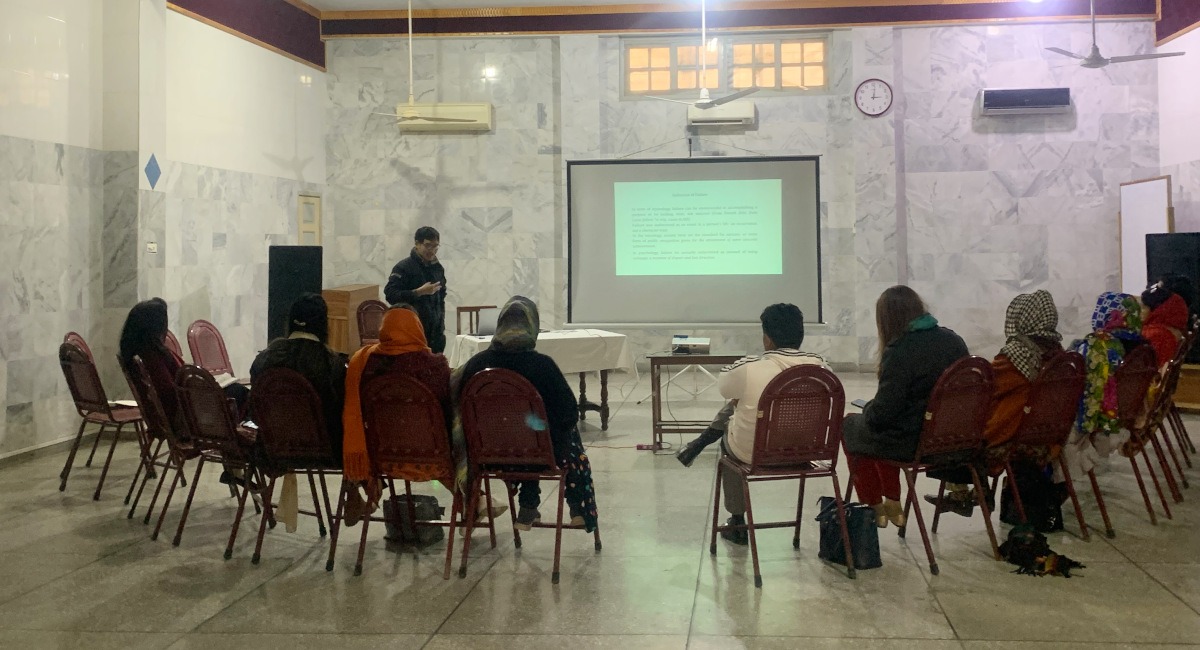
Why did we choose this topic of failure? Firstly, we want to introduce important experiences of Ignatius during his conversion process. Ignatius’ experiences with failure were one of the many ways God used to reveal His will. Furthermore, having these particular kinds of experiences, Ignatius also had a hint of how God works. It can be said that his experience of failure led him to go out of himself and totally depend on God.
Secondly, we want to pass on to our collaborators the Ignatian spirit, that is, “Never give up!” His experience of failure led Ignatius to ask, Quid agendum? “What should I do?” Similarly, we face challenges in running our schools that can lead us to failure, but that is part of the mission. The question is, “What is our attitude when this arises?” Besides hoping in the love of God, we bring along with us the spirit of never giving up, which is the spirit of a valiant knight of God.
Having Ignatius’ experiences as a backdrop, one participant reflected: “Failure is not a regression in comparison with others, but a new path on our journey that we can embrace as a new experience.” Another commented likewise: “Failure is a departure from the old or previous plan that had been laid out.” Such observations made us, facilitators, very happy because they were the fruits of our engagement.
In the same way, reflecting on some “failure” experiences of Ignatius provided us with a good opportunity to review the previous years and look forward to a new phase for the Pakistan Mission, now as a part of JCAP. Drawing from Ignatius’ experience, failure is perceived as “a time of thanksgiving”, reminding all of us in this mission that discernment and awareness of God’s presence can open us to new possibilities.
Joining JCAP means we have been invited to immerse ourselves in a broader, stronger, deeper, and more effective connection with the universal Society of Jesus. During the JCAP meeting in Australia, Fr Juan Carlos Pallardel SJ, Pakistan Mission Delegate, felt this strong connection, especially with the presence of Father General and the spirit of availability and cooperation shown by all the major superiors of JCAP. From this perspective, the events of the past serve as the fundamental seed that God has sown to prepare us for a bountiful harvest.
Furthermore, I arrived in Pakistan from Vietnam only two and a half months ago. Beginning my Regency with a session on “failure” prompted me to reflect on the presence of the Vietnamese Regents in Pakistan, which is a new environment for us, far from our country and, initially, from our minds. Our past failures in Vietnam provide us with lessons to guide our new ministry in Pakistan. They can be a means for God to train, instruct, and assist us in discovering His presence and His love for this country. Our failures help us to be open in courageously facing many challenges ahead and, more importantly, allow us to taste, “sentire,” the hospitality of Pakistanis, and know ourselves better every day. Should failure be a part of our future here, then we will be able to feel what Ignatius experienced when, “God treated him at this time just as a schoolmaster treats a child whom he is teaching” (Autobiography 27).
This entire journey has been a kind of encounter between various “failures” experienced at different times—be it Ignatius’ experience of failure, the challenges faced by our collaborators, or the unfamiliar experiences encountered by us Vietnamese Regents in this new setting—all perceived as ways through which God has led each one of us to enter deeply into a relationship with Him. This is the experience of Jesus, who encountered many moments of failure in his earthly mission, including the stubbornness of the Jews, opposition from the Pharisees and the Jerusalem High Priests, and ultimately, his death on the Cross. But amid these trials, his hope in the Father remained steadfast. Ignatius similarly held onto hope throughout his life, a characteristic that is now deeply embedded within the Jesuit identity. We are reminded of this in the document, De Statu Societatis, which directs us to “Hope in Him alone.” In this world, placing our hope in Jesus always leads to a new chapter, one that is guided by the hands of Jesus himself.







